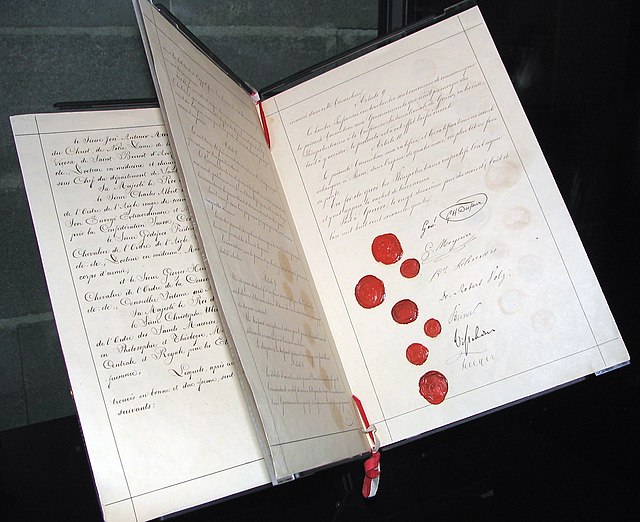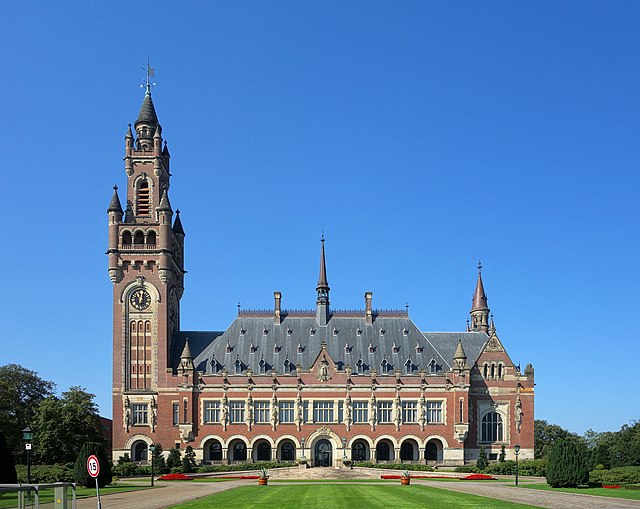International humanitarian law
International humanitarian law (IHL), also referred to as the laws of armed conflict, is the law that regulates the conduct of war. It is a branch of international law that seeks to limit the effects of armed conflict by protecting persons who are not participating in hostilities and by restricting and regulating the means and methods of warfare available to combatants.
The First Geneva Convention of 1864.
International law is the set of rules, norms, and standards generally recognized as binding between states. It establishes norms for states across a broad range of domains, including war and diplomacy, economic relations, and human rights. International law differs from state-based domestic legal systems in that it is primarily, though not exclusively, applicable to states, rather than to individuals, and operates largely through consent, since there is no universally accepted authority to enforce it upon sovereign states. States may choose to not abide by international law, and even to breach a treaty but such violations, particularly of peremptory norms, can be met with disapproval by others and in some cases coercive action ranging from diplomatic and economic sanctions to war.
The Hittite version of the Treaty of Kadesh, among the earliest extant examples of an international agreement
A portrait of Dutch jurist Hugo Grotius
Justices of the International Court of Justice in 1979
The Peace Palace in the Hague, which houses the International Court of Justice





